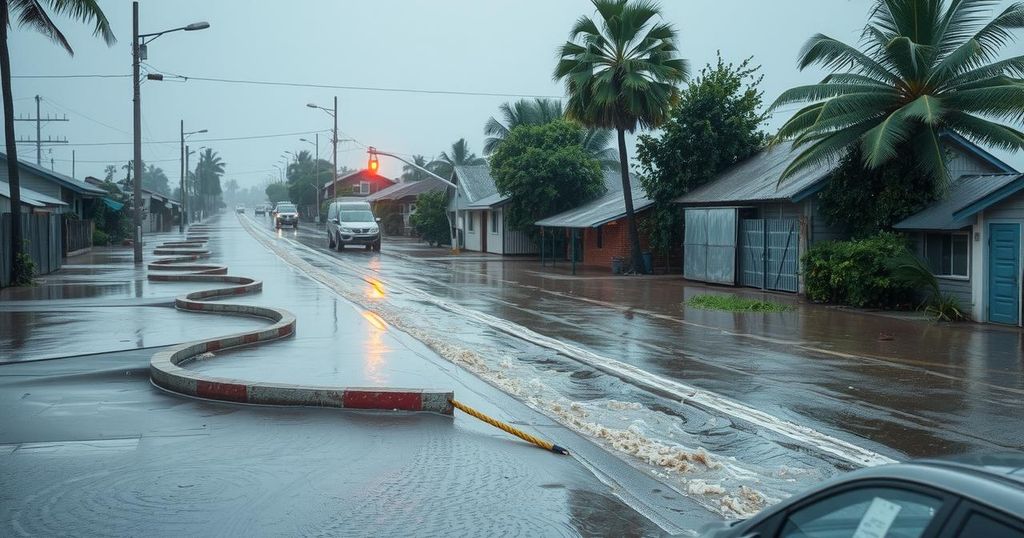Mozambique Cyclone Chido: Devastation and Humanitarian Impact
Tropical Cyclone Chido has severely impacted northern Mozambique, affecting over 181,554 individuals, primarily women and children. The storm has caused significant destruction, with more than 36,000 homes damaged. Relief efforts are complicated by compromised infrastructure in a region already struggling with displacement due to conflict.
Tropical Cyclone Chido recently struck northern Mozambique, primarily affecting the provinces of Cabo Delgado, Nampula, and Niassa. The cyclone, which brought heavy rains and strong winds over the weekend, has left a significant impact on local communities, with 181,554 individuals affected as estimated by the National Institute for Disaster Management. Tragically, approximately 75% of those impacted are women and children, highlighting the vulnerability of these populations.
Furthermore, the cyclone has resulted in extensive damage, with over 36,000 homes either partially or completely destroyed. In some areas, it is reported that only a handful of structures remain standing. This disaster adds to the already precarious situation in northern Mozambique, where nearly 300,000 persons had previously been displaced due to ongoing conflict. The destruction of roads and communication networks is impeding relief efforts, complicating the assistance to those who are in dire need.
Cyclone Chido made landfall in Mozambique, following a series of climatic challenges that have plagued the region. The cyclone brought extreme weather conditions that devastated communities and exacerbated existing vulnerabilities stemming from years of conflict and economic instability. The National Institute for Disaster Management has been monitoring the situation closely, estimating the scale of the disaster and coordinating responses to mitigate its impact on the affected populations.
In summary, Tropical Cyclone Chido has had a profound effect on northern Mozambique, displacing thousands and damaging vital infrastructure. The disaster underscores the existing vulnerabilities in the region, particularly among women and children. Efforts to provide relief are hampered by the destruction of roads and communication systems, highlighting the urgent need for targeted humanitarian assistance as communities begin the arduous process of recovery.
Original Source: reliefweb.int




Post Comment